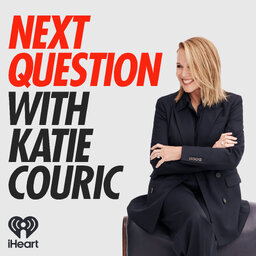Teens: The Power of Vulnerability
The hosts of the hit podcast, Teenager Therapy – Gael Aitor, Kayla Suarez, and Thomas Phamm – have been making a difference in the lives of their young audience for nearly five years. Now, on the verge of turning 20, they share the wisdom they’ve discovered along the way – and it might surprise you. They believe that the best relationships happen IRL, friendships require a lot of work, and the best way to reach teens is by using one of the most powerful communications tools there is (and they should know): vulnerability. Their openness will allow you to see how much teens’ lives have changed – and give you new insight into the mental health crisis that affects so many of them right now.
Want to be a know-it-all? Subscribe to Wake Up Call, our jam-packed newsletter. Monday through Saturday, we break down the top news stories of the day, answer your pressing questions, and scour the internet for the best entertainment tidbits, streaming recommendations, recipes, and health and wellness tips. To sign up, go to katiecouric.com, or click here.
 Next Question with Katie Couric
Next Question with Katie Couric


